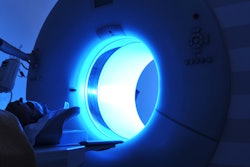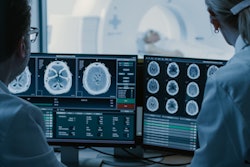Dear MRI Insider,
Patients with multiple sclerosis (MS) experience a number of conditions that exacerbate the disease, which is fostered by brain and spinal cord lesions that damage myelin, the protective sheath that surrounds and protects cells. While physicians and clinicians have several clinical tools to assess the severity of MS, questions remain as to which imaging biomarker is most influential in assessing the severity of MS.
Japanese researchers have identified three basic MRI biomarkers that can help determine the current level of disease severity and concurrent neurological disability in patients with MS. Their findings are the focus of this edition's Insider Exclusive.
Elsewhere, French researchers also have identified three key MRI biomarkers to improve the preoperative detection of a particularly aggressive form of hepatocellular carcinoma (HCC). Improving the early identification of this HCC subtype could better determine the need for lesion biopsy, more direct treatment, or surgery.
The novel coronavirus continues to have the entire world on edge as healthcare experts look for ways to slow the rise in cases. Researchers from Henry Ford Health System in Detroit have offered new CT and MR images of a patient in Michigan with COVID-19 that appear to show the effects on the brain brought about by "cytokine storm syndrome," which happens when the body's immune system produces a flood of immune cells that can damage organs.
You might have more time at home now, given COVID-19 stay-at-home orders, but that is no reason to start binge drinking. A new study shows that functional MR images have uncovered decreased connectivity in part of the brain's basal ganglia resulting from excessive alcohol intake, which could explain an impulsive person's inclination to continue to binge drink.
In other news, using MRI data for 3D-printed orbital models can help clinicians plan surgery to treat blowout fractures. These findings offer patients and surgeons a radiation-free alternative to CT, which has long been the gold standard for staging orbital fracture surgery.
Certain features on dynamic contrast-enhanced MRI scans analyzed by computer-aided detection (CAD) software may indicate a worse prognosis for women with invasive breast cancer. CAD findings that could be a sign of a worse prognosis include higher peak gadolinium enhancement and degree of washout on preoperative MRI. The study findings could help clinicians better tailor breast cancer treatment.
Be sure to stay safe and healthy during this COVID-19 pandemic, wash your hands often, and check in with the MRI Community on AuntMinnie.com on a regular basis for more news and research developments from around the globe.



.fFmgij6Hin.png?auto=compress%2Cformat&fit=crop&h=100&q=70&w=100)




.fFmgij6Hin.png?auto=compress%2Cformat&fit=crop&h=167&q=70&w=250)











